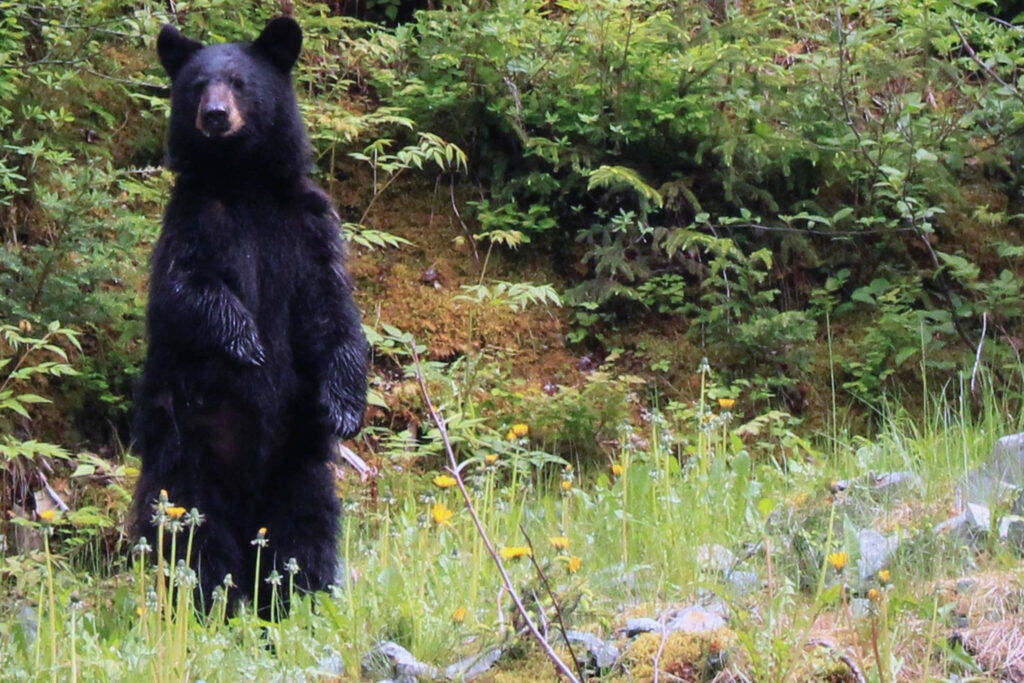As sunny days become slightly less seldom, and the temperature rises, humans aren’t the only mammals in the region emerging from their winter living quarters.
So too will return many of the bears around Juneau in the not-so-distant future, said Roy Churchwell, an Alaska Department of Fish and Game area biologist.
“We do see bears every month of the year, so it’s not like, first bear ever,” Churchwell said in an interview last week. “We haven’t gotten any reports.”
[Alaska Folk Festival begins with a roar]
As the weather warms, the bears will become more active and search for sustenance, first in the growing greenery of the wilderness.
“The trash can issue is usually later,” Churchwell said. “As they come out they usually go to coastal areas or south-facing slopes where there’s green vegetation starting to grow. We don’t see them in town right off the bat usually.”
Different bears will emerge depending on their life circumstances, Churchwell said.
“Males come out first, then females without cubs, and then females with cubs last,” Churchwell said. “The females with cubs are probably waiting for those cubs to grow a little more and be a bit more mobile.”
Bears in search of food later in the season may wander into town in search of foraging, often in garbage containers.
“We don’t see them in town right off the bat usually,” Churchwell said. “Usually when we start getting calls is when the vegetation starts to dry up a little bit.”
Keeping bears away from human food is important for preventing confrontation, according to ADFG’s bear page.
“Bears like garbage,” according to ADFG’s best practices page. “Garbage can be easy for bears to obtain and is often calorie-rich, which makes it attractive food for bears.”
It’s illegal to feed bears, along with moose, deer, elk, wolves, coyotes, foxes or wolverines, according to state law. It’s also illegal to kill a bear that one has attracted by improperly storing food or garbage, according to ADFG.
To avoid an unfortunate ursine encounter
— Only put out trash the morning of pickup
— Store garbage and animal feed inside or in bear proof containers, including pet food, livestock feed, and fish or meat scraps.
— Take down bird feeders from approximately April to October and clean grills after grilling
— Close and lock doors and windows bears could crawl through
For more advice on keeping one’s residence bear-safe, check out the ADFG’s bear page.
• Contact reporter Michael S. Lockett at 757-621-1197 or mlockett@juneauempire.com.

